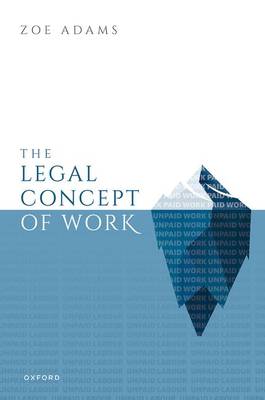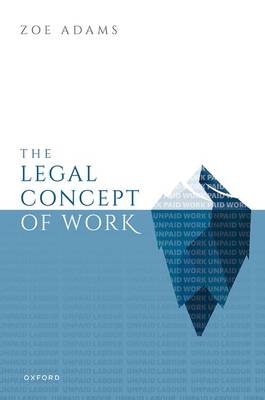
- Afhalen na 1 uur in een winkel met voorraad
- Gratis thuislevering in België vanaf € 30
- Ruim aanbod met 7 miljoen producten
- Afhalen na 1 uur in een winkel met voorraad
- Gratis thuislevering in België vanaf € 30
- Ruim aanbod met 7 miljoen producten
Zoeken
Omschrijving
"Why do we think about some practices as work, and not others? Why do we classify certain capacities as economically valuable skills, and others as innate characteristics? What, moreover, is the role of law in shaping our answers to these questions?" These are just some of the queries explored by Zoe Adams's analysis of the legal construction, and regulation, of work. Spanning from the 14th century to the present day, The Legal Concept of Work explores how the role of law and legal concepts comes to consider some forms of human labour as work, and some forms of human labour as non-work. It examines why perceptions of these activities can change over time, and how legal constitution impacts the way in which work comes to be regulated, organised, and valued. As part of the analysis, the book presents a series of case studies, ranging from the publishing industry, academia, medicine, and retail, with a view of illustrating some of the regulatory challenges different types of work face, in the context of capitalism.
Specificaties
Betrokkenen
- Auteur(s):
- Uitgeverij:
Inhoud
- Aantal bladzijden:
- 416
- Taal:
- Engels
Eigenschappen
- Productcode (EAN):
- 9780192857774
- Verschijningsdatum:
- 10/02/2023
- Uitvoering:
- Hardcover
- Formaat:
- Genaaid
- Afmetingen:
- 163 mm x 229 mm
- Gewicht:
- 793 g

Alleen bij Standaard Boekhandel
+ 515 punten op je klantenkaart van Standaard Boekhandel
Beoordelingen
We publiceren alleen reviews die voldoen aan de voorwaarden voor reviews. Bekijk onze voorwaarden voor reviews.











